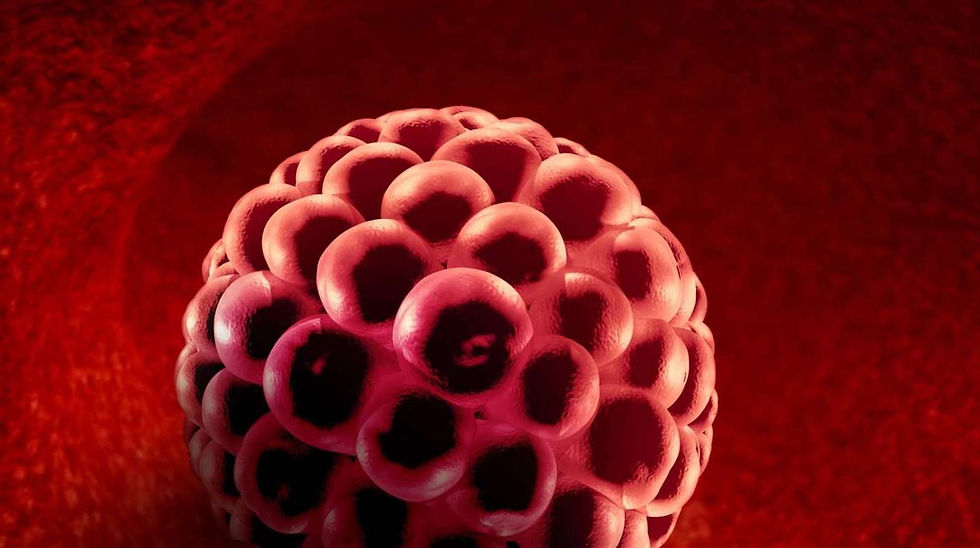Sleep and fertility
- Dr. Jaime DeGuzman, DTCM, L.Ac

- Feb 19
- 4 min read
The quality of sleep can affect a person’s mental state, brain function, metabolism, and hormone levels which in turn affects reproductive function leading to infertility.

Introduction
Sleep is essential for overall health and well-being. The quality and quantity of sleep not only affects the immune system, stress levels, weight gain, mood, and longevity, but it can also affect sex hormones, sperm production, and ovulation. According to a study published in 2024 by Sleep Science and Practice, lack of sleep may lead to irregular menstruation and affect a woman's fertility. Men are also affected by lack of sleep. A study published in 2020 by Environmental International concluded that:
“ Men reporting poor sleep quality had a lower total count, total motility, and progressive motility compared with men reporting good sleep quality”.
Background
The amount of sleep each person needs depends on many factors, including age. For most adults, 7 to 8 hours per night appears to be the best amount of sleep. Either less or more hours of sleep can negatively affect one’s health. According to a study published in 2010 by the Sleep Research Society, people reporting consistently sleeping 5 hours or less per night should be regarded as a higher risk group for all-cause mortality. In contrast, the same study mentions that sleeping more than 9 hours can also have negative effects. The study concluded by saying that:
“ Both short and long duration of sleep are significant predictors of death in prospective population studies”.
Sleep and male fertility
When it comes to fertility, the quality and quantity of sleep is important. A study aimed to investigate the effects of sleep duration on sperm health, was published in 2017 by Medical Science Monitor. The participants, 981 healthy male adults, were randomly divided into 3 groups, depending on the time that they went to sleep. The participants in groups A, B, and C started to sleep at bedtimes of 8–10 PM, 10 PM–midnight, and after midnight, respectively. Then, the participants in each group were subdivided into 3 subgroups based on duration of sleep (in hours): <6.0 h (short sleepers), 7.0–8.0 h (average sleepers), and >9.0 h (long sleepers). Sperm count and survival rates were analyzed according to sleep patterns. The study found that the numbers of sperm cells in the semen and their survival rates were significantly lower in all of the short sleepers and the most of the long sleepers, suggesting that reduction in the sperm cells depended on the length of sleep time. The study concluded by saying:
“ Our study results show that short and long sleep durations and later bedtime can reduce sperm count, survival, and motility, partly through increasing ASA (Anti-Sperm Antibody) production”.
Sleep and female fertility
In women, sleep quality is also associated with infertility. Poor sleep quality, extreme sleep durations, and certain sleep disorders are associated with poorer fertility treatment outcomes, such as a reduced number of retrieved oocytes (eggs), decreased embryo quality, and lower fertilization rates. A Systematic Review published in 2024 by BMC Women’s Health concluded that:
“ Sleep disturbances are negatively associated with female infertility and poor fertility treatment outcomes”.
IVF and sleep
The quality of sleep also has an effect on women going through an IVF cycle. A study aimed to understand whether sleep quality and psychological health of women going through IVF were associated with the chances of success of the treatment was published in 2022 by Scientific Reports. The study revealed that sleep quality, but not psychological health, was associated with lower chances of pregnancy. The study concluded by saying that:
“ Low sleep quality is common in women scheduled for IVF and could influence the success of the procedure”.
TCM and sleep
From a TCM point of view, nourishing Blood, building Qi, nourishing Kidney Yin and nourishing Kidney Yang are priorities while trying to conceive, thus sleep is of supreme importance. It is at night when the body and mind are at complete rest that these energies can be restored. Unfortunately, according to some studies, the capacity for deep sleep starts to decline after age 30, paralleling the decline in Kidney Yin and Kidney Yang in TCM. Fortunately, TCM offers many tools, including acupuncture and Chinese herbal formulas, to help achieve healthy sleep patterns. A systematic review of 46 randomized trials involving 3,811 patients concluded that:
“Acupuncture appears to be effective in treatment of insomnia”.
A review published in 2024 by Sleep Medicine Reviews summarizes the clinical and preclinical evidence of acupuncture as a treatment for primary insomnia. The review discusses the potential mechanisms of acupuncture and its role in relieving insomnia. The review mentions that in the past decade, there have been at least six systematic reviews and meta-analyses that summarized the evidence from randomized controlled trials of acupuncture on primary insomnia. The review concluded by saying that:
“Our review suggests that acupuncture appears to be a promising alternative drug-free therapy for individuals with primary insomnia, especially those who cannot tolerate hypnotics or do not have access to CBTi (Cognitive Behavioral Therapy for insomnia)”.
Conclusion
It has been shown, by several studies, that the quality and quantity (not enough or too much sleep) of sleep negatively affects male and female fertility. Compared to expensive treatments such as CBTi, or with the side effects of the hypnotic drugs, acupuncture is an effective, affordable, and safe way to treat insomnia.






Comments